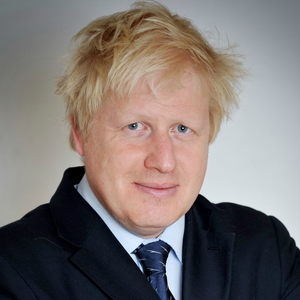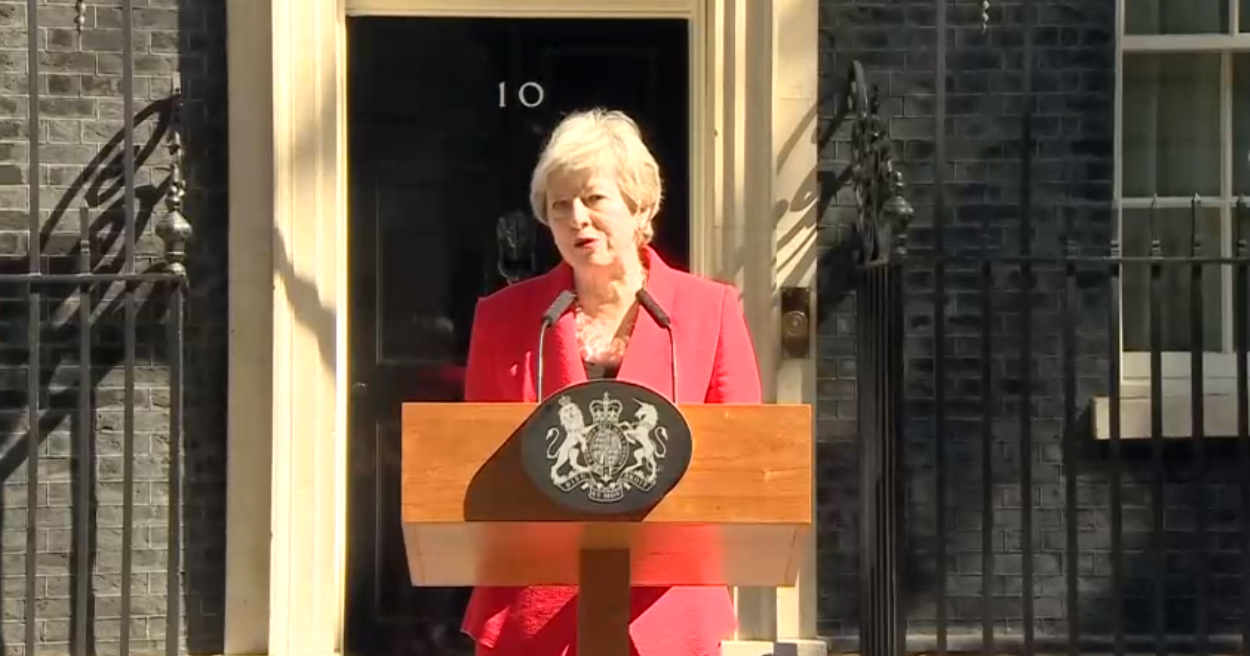Theresa May is resigning as prime minister.
She announced she is standing down on June 7, 2019.
She became the prime minister in July 2016.
Pressure has been mounting over her failure to deliver Brexit.
Still PM for Donald Trump's visit
May delivered her speech on May 24 morning shortly after meeting the chairman of the Conservative Party backbenchers at 9am.
The timing means a new Tory leader and prime minister should be in place by the end of July.
But she will still be in power for United States president Donald Trump’s state visit from June 3 to 5.
It also comes the day after European elections, in which the Tories are expected to perform poorly.
Emotional
Her voice broke during her emotional speech making her announcement.
The Prime Minister said it had been "the honour of my life" to serve "the country that I love".
May also said she had "done her best" to deliver the result of the EU referendum.
“It is and will always remain a matter of deep regret to me that I have not been able to deliver Brexit,” she said.
Boris Johnson in the running
May will remain until a successor is picked.
Boris Johnson is the current favourite to replace May.
 Boris Johnson
Boris Johnson
Cause of her resignation
Her Brexit deal was dead on arrival.
May’s failure to lead Britain out of the EU led to her demise as prime minister.
She faced an uphill struggle to persuade people to believe in her born-again Brexiteer credentials.
She had campaigned for Remain during the Brexit campaign.
Her of-repeated soundbite of "Brexit means Brexit" cut no ice with her colleagues.
The deal she managed to negotiate with the EU was deemed not Brexit-y enough by the hardline Eurosceptics in her party.
Brexiteers within her own party were furious by the concessions: There was the offer of a potential second referendum and customs union arrangement announced on Tuesday, May 21.
Many senior Cabinet members made it clear her time was up.
The other parties also said they would not support the deal.
A number of her own MPs refused to be won over and voted against her deal on each of the three occasions she put it before MPs.
Many other ministers quit.
Her last-gasp effort to win over the Commons was what sealed her fate.
A last-gasp effort to win support for her Withdrawal Agreement Bill had backfired spectacularly.
No-Deal Brexit
Before January 2017, a no-deal Brexit was not even a thing.
But after Theresa May introduced the "no deal was better than a bad deal" notion, Eurosceptic Tories seized upon the idea of abandoning the difficult negotiations with the EU and leaving without an agreement.
Rebel MPs could not be persuaded to back a deal they feared could see the UK tied to Brussels indefinitely.
This was despite warnings about the consequences of no deal -- food shortages, expensive groceries, compromised safety for citizens.
In early 2019, May no longer believed no deal was a viable option.
Or she never had.
Brexiteer MPs disagreed and remained willing to vote down her deal.
Losing majority
May could be blamed for making matters worse.
She had inherited a slim majority when she took over as prime minister.
Optimistic she was a popular choice, May called a General Election to take place in June 2017 to gift herself a smoother ride through parliament.
It failed.
During the campaign, support for Labour and Jeremy Corbyn exploded and voters abandoned May.
She ended up losing her majority and was forced into partnership with the Democratic Unionist Party.
The coalition made it much more difficult for her to get Brexit legislation approved.
36 ministers quit during May's time in office
Disapproval of May's performance was evident.
A total of 36 minister have quit during her time in office.
Many did so in protest at the way she has dealt with or failed to deal with Brexit.
May's resignation was almost foretold.
Andrea Leadsom dealt another blow when she quit as Leader of the House of Commons on May 22 evening.
Leadsom said she had lost confidence May would "deliver on the referendum result".
The resignation of Leadsom is widely seen as the death blow to May.
It demonstrated beyond dispute that she is unable to win the support of the Conservative party MPs.
May has the 37th-longest time served among prime ministers of the United Kingdom at two years and 207 days.
If you like what you read, follow us on Facebook, Instagram, Twitter and Telegram to get the latest updates.
